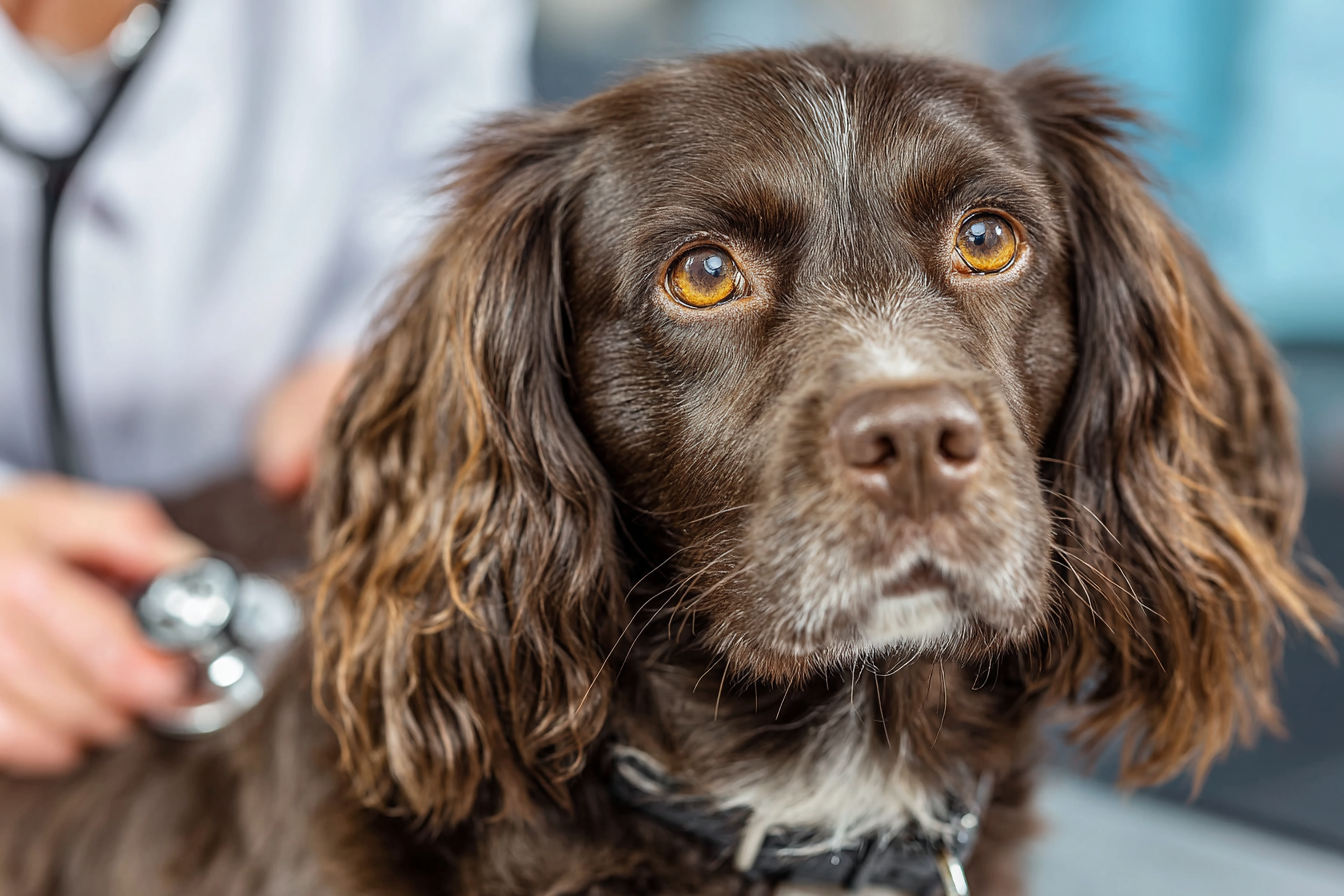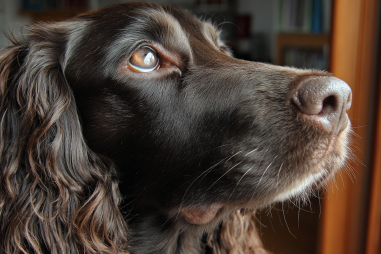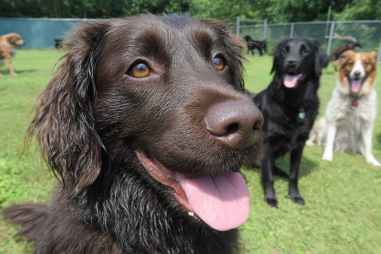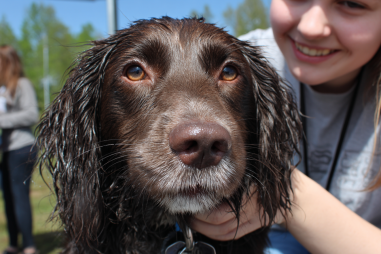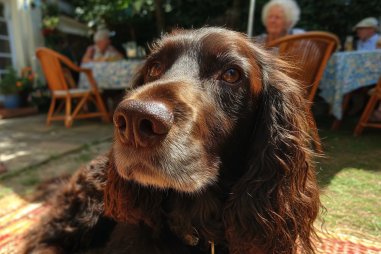The Boykin Spaniel is a charming and energetic breed, known for its friendly personality and versatility as a hunting and family dog. Like all breeds, Boykin Spaniels come with their own set of health concerns that owners should be aware of to ensure their furry friends live a happy and healthy life. In this article, we will explore the common health issues seen in Boykin Spaniels, how you can spot the warning signs early, and practical tips on preventative care including nutrition and exercise to keep your loyal companion thriving.
Understanding the Health Profile of Boykin Spaniels
Boykin Spaniels are generally robust dogs, but they do have some predispositions to specific hereditary health problems due to their genetic background and breeding history. This breed was originally developed in the early 1900s for hunting in South Carolina, and their working lineage has contributed to a solid build and good stamina. However, as the breed’s popularity has grown, so has the importance of awareness around health concerns that could affect their quality of life.
Knowing the breed’s health profile will help you stay proactive about your Boykin’s well-being. Information on common genetic issues combined with routine care can dramatically reduce the risk of serious problems emerging.
Common Genetic Health Issues in Boykin Spaniels
Like many purebred dogs, Boykin Spaniels are prone to certain hereditary conditions due to the gene pool they come from. Here are some of the most frequent health concerns reported in the breed:
- Hip Dysplasia: A common orthopedic issue where the hip joint does not fit properly into the socket, leading to arthritis and mobility difficulties over time.
- Eye Conditions: Such as Progressive Retinal Atrophy (PRA), cataracts, and Collie Eye Anomaly (CEA), which can result in vision loss or blindness if not detected early.
- Hypothyroidism: This thyroid gland disorder affects metabolism and energy levels and requires ongoing management through medication and diet.
- Patellar Luxation: The kneecap can dislocate or move out of place, causing lameness or discomfort.
- Ear Infections: Due to their floppy ears, Boykin Spaniels can be prone to infections if proper ear hygiene isn’t maintained.
Understanding these conditions and how they may affect your dog is the first step toward prevention and timely intervention.
Signs to Watch For
Being alert to subtle signs can make a huge difference in catching health issues early. Observing your Boykin Spaniel’s behavior and physical condition regularly gives you the best chance of spotting problems before they worsen. Some common signs to watch for include:
- Difficulty rising, limping, or reluctance to jump, which could suggest joint issues like hip dysplasia or patellar luxation.
- Changes in eyesight, such as bumping into objects or reluctance to move in dim light, possibly indicating eye problems.
- Excessive scratching, head shaking, or unpleasant odor from the ears, often symptoms of an ear infection.
- Weight gain or lethargy that might signal hypothyroidism or other metabolic issues.
- Persistent coughing, changes in appetite, or unusual lumps that warrant a vet inspection.
If you notice any of these signs, the sooner you consult your veterinarian, the better the chance for successful treatment or management.
The Importance of Regular Vet Visits
Routine veterinary care is critical for maintaining your Boykin Spaniel’s health. Regular check-ups allow your vet to monitor for early signs of disease and provide vaccinations, parasite control, and dental care. Early diagnosis of genetic conditions like hip dysplasia or thyroid problems can improve treatment options and outcomes. Additionally, your veterinarian can offer personalized advice on diet, exercise, and preventive measures based on your dog’s age and health status.
Scheduling bi-annual or annual wellness exams, depending on your dog’s age and health risk factors, ensures that any developing issues are caught early and your Boykin receives the best possible preventive care.
Preventative Care Tips to Enhance Your Boykin’s Health
Preventative care goes beyond regular vet visits. Incorporating daily and seasonal routines focused on health maintenance can minimize risks and improve longevity. Here are some essential tips:
- Maintain a Regular Grooming Schedule: Frequent brushing helps remove dirt and loose fur, while routine ear cleaning prevents infections common in floppy-eared breeds.
- Exercise Consistently: Boykins are active dogs who thrive on outdoor activities. Regular exercise supports healthy joints, maintains a proper weight, and boosts mental well-being.
- Monitor Weight and Diet: Obesity can exacerbate joint issues and lead to other illnesses, so managing calorie intake and offering a balanced diet is crucial.
- Provide Dental Care: Regular teeth brushing or dental treats can ward off periodontal disease, contributing to overall health.
- Early Screening Tests: Genetic health screenings and eye exams from specialized veterinary ophthalmologists help detect problems early.
The Role of Nutrition and Exercise in Boykin Spaniel Health
A well-balanced diet tailored to your Boykin Spaniel’s life stage, size, and activity level fuels their body for both everyday life and energetic playtimes. High-quality dog food with the right mix of protein, healthy fats, vitamins, and minerals supports immune function, coat quality, and muscle maintenance. Some owners might consider supplements such as omega-3 fatty acids or glucosamine after consulting with their vet to help with joint health.
Exercise is equally vital for keeping Boykin Spaniels healthy and happy. These dogs need daily physical activity to prevent boredom, reduce stress, and maintain cardiovascular health. Walking, swimming, hunting games, or agility training can meet their energy needs while helping maintain muscle tone and joint mobility.
A combination of proper diet and consistent exercise can help stave off obesity, which often worsens many health issues.
Looking After Your Boykin Spaniel for a Lifetime of Happiness
Boykin Spaniels bring boundless joy and companionship to their families. Being informed about their common health concerns and taking a proactive approach to prevention makes a significant difference in their quality of life. By monitoring for warning signs, staying up to date with veterinary care, maintaining good nutrition, and providing ample exercise, you can help your Boykin live a vibrant, energetic, and healthy life for many years to come.

